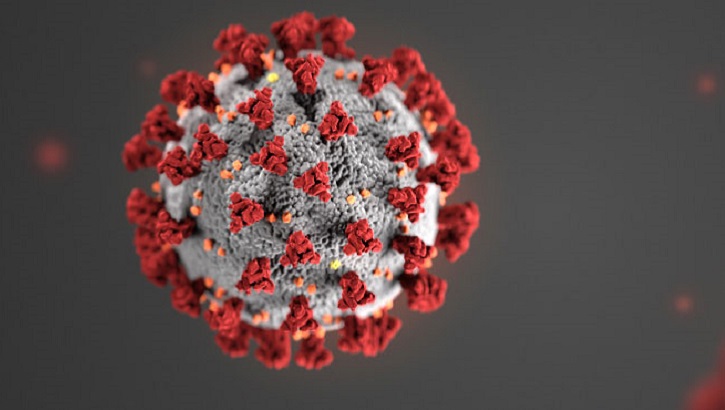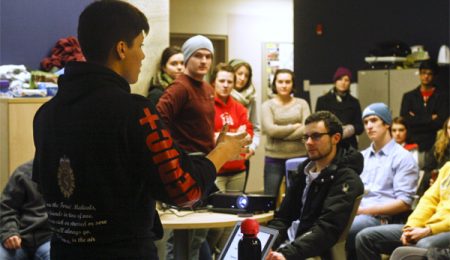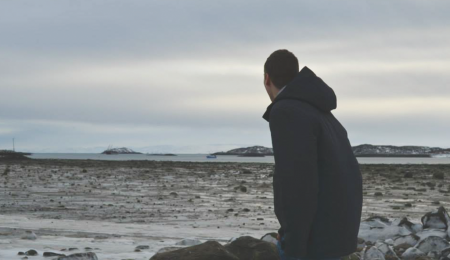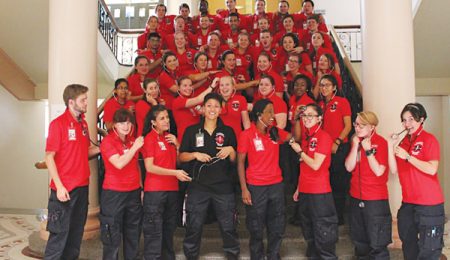Researchers will develop diagnostic tests, genetically engineered antibodies, study public health messaging
Five University of Ottawa professors are receiving more than $2 million in funding from the federal government to support research projects aimed at addressing the COVID-19 epidemic.
On Friday, the Canadian government announced an investment of close to $27 million to fund medical, social, and policy countermeasures to address the spread of COVID-19.
Since originating in Wuhan, China in December 2019, COVID-19 has killed more than 3,000 people and sickened over 100,000, with the highest number of reported cases outside of China appearing in South Korea, Italy, Iran, and Japan.
As of Friday, there were a total of 49 confirmed cases of COVID-19 in Canada, with 26 reported cases in Ontario, 21 in British Columbia, and two in Quebec. There have been no confirmed cases of COVID-19 in Ottawa and the public health risk associated with COVID-19 remains low for Canada.
“The emergence of COVID-19 has also clearly demonstrated the need for clear, timely and accessible information from trusted sources to counter the dissemination of false information, incidents of racism, and generalized panic in the population,” the U of O said in a press release.
Maxim Berezovski, a professor in the department of chemistry and biomolecular sciences who heads the Bioanalytical and Molecular Interaction Laboratory, will develop low-cost, rapid and simple point-of-care diagnostic tests to diagnose COVID-19. Berezovski will work with a team of specialists in chemistry, infectious diseases and clinical diagnostics.
Patrick Fafard, associate director of the Global Strategy Lab and professor in the Graduate School of Public and International Affairs, will lead an international team that will investigate how senior government officials communicate public health advice.
Fafard’s team’s research will assess how the public understands and trusts messages from the government, contributing to public health response strategies for mitigating the spread of infectious disease in Canada and four other countries.
Ronald Labonté, a professor in the School of Epidemiology and Public Health, will study the implementation of the World Health Organization’s One Health principles in the governance of infectious disease in Canada and abroad. Labonté’s main goal is to foster evidence-based public health response strategies to the coronavirus and to enhance international collaboration.
Marc-André Langlois, a professor in the department of biochemistry, microbiology and immunology and director of the CL2+ Biocontainment Laboratory, will lead a team to develop genetically engineered antibodies for use as therapeutic agents to limit the spread of COVID-19 and help identify the virus in patient samples.
The team, including experts at the National Research Council, will also develop a diagnostic tool for use in clinics, in the field and in remote areas. They will work to create a low-cost nasal spray vaccine using plants to express virus proteins.
Kumanan Wilson, a professor in the School of Epidemiology and Public Health and a senior scientist at the Ottawa Hospital, will work with a team to evaluate Canada’s preparedness and response to the COVID-19 outbreak. Based at the Bruyère Research Institute, the study will help identify opportunities for Canada to help international health authorities respond to public health emergencies.
“These investigators and their respective research teams possess the required expertise, tools, and infrastructures required to promptly mobilize and contribute to the global response against COVID-19, and better prepare us collectively against future outbreaks of new strains of coronaviruses,” the U of O wrote in the press release.
The U of O has launched an international travel registry and suspended operations in Iran and China amid the spread of COVID-19.
The Public Health Agency of Canada is asking those who have recently travelled to mainland China (including Hong Kong), Iran, northern Italy, Japan, Singapore or South Korea to take a number of precautions for two weeks days after arriving back home, as contact with COVID-19 is possible.
Those precautions include monitoring for the symptoms of COVID-19 (fever, cough and difficulty breathing) as well as self-isolating as quickly as possible and calling a health care professional or public health agency if symptoms do appear.
Read More:
- U of O suspends operations in China due to spread of coronavirus
- U of O suspends operations in Iran, launches travel registry amid COVID-19 spread





